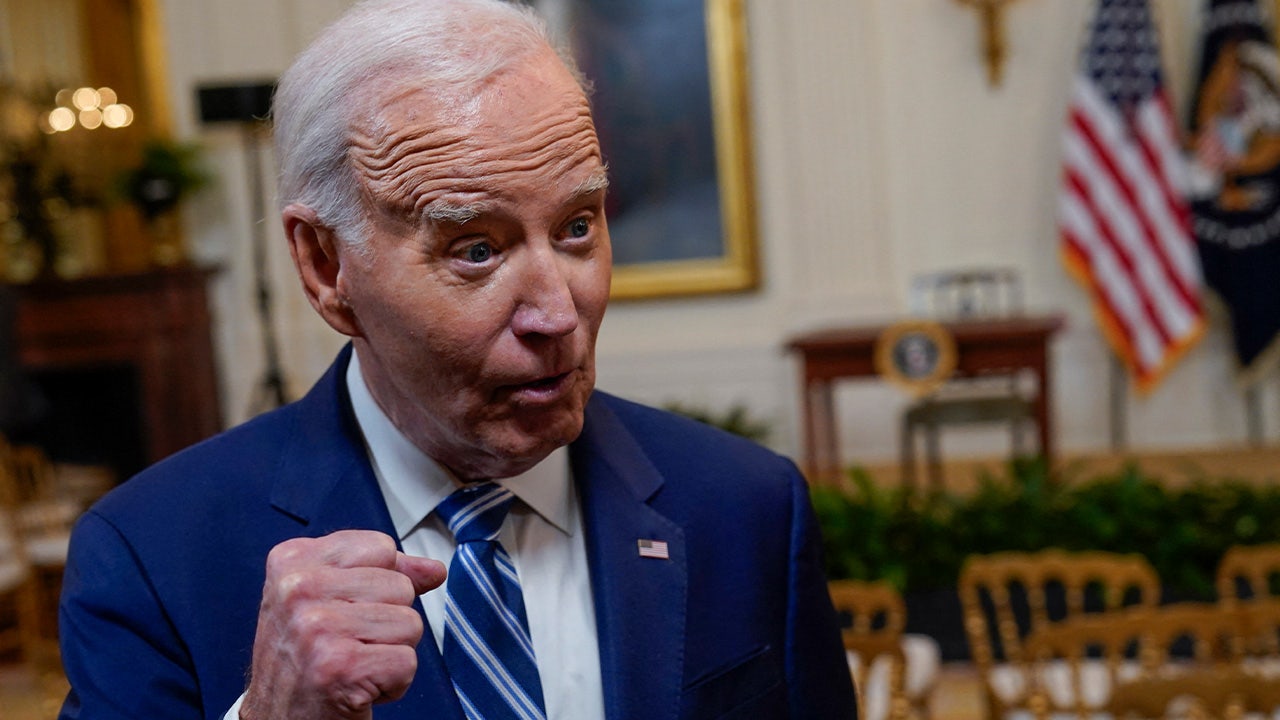Finance
Does a federal court ruling threaten the future of decentralized finance?

A federal judge has placed the future of decentralized finance in question with an early June ruling that a DAO, shorthand for a decentralized autonomous organization, can be held liable for violating commodity exchange rules.
In what regulators have celebrated as a ‘precedent-setting’ victory, Judge William Orrick of San Francisco ruled in favor of the Commodities Futures Trading Commission on a case that identified a DAO, Ooki, as a “person” under the Commodity Exchange Act.
On the heels of another Orrick ruling in December allowing the DAO’s token holders to be served via a chatbot post in a community forum, the ruling suggests that the anonymous members who govern unincorporated blockchain protocols through majority voting systems share liability for the organization’s missteps.
“It smokes out the reality that the emperor has no clothes,” said Daniel Kolber, counselor at Warren Law Group and owner of Intelliver Securities Research. “In order to have accountability, you can’t have anonymity.”
Other organizations that purport to be decentralized, and that challenge mainstream financial institutions with promises of fairer and lower-cost options, could be subject to the same regulation going forward, Kolber added –– potentially disincentivizing investment in the defi space.
“This now puts a big cloud of uncertainty over, not only DAOs, but everything decentralized,” Kolber said. “The market hates uncertainty.”
Founded in 2017, bZeroX developed and marketed its protocol as a de facto trading venue. Trades were self-executed through smart contracts that automated a trade on the blockchain according to pre-agreed terms.
After being accused by the CFTC of operating as an illegal futures commissions merchant in 2021, bZeroX was restructured as a DAO.
“It’s really exciting. We’re going to be really preparing for the new regulatory environment by ensuring bZx is future-proof,” said bZeroX founder Kyle Krister in a public statement when the company became a DAO. “What we’re going to do is take all the steps possible to make sure that when regulators ask us to comply, that we have nothing we can really do because we’ve given it all to the community.”
The founders handed control of the protocol, which they renamed Ooki DAO, over to the entirety of its anonymous token holders. After being given administrative keys, members could vote on how to control and govern the protocol –– supposedly without bearing responsibility for it.
The CTFC was unimpressed.
The commission sued Ooki Dao for intentionally attempting to duck commodities trading laws by decentralizing in 2022, alleging that the DAO had acted as an illegal trading platform by failing to adhere to CEA requirements to register as a Futures Commission Merchant and conduct know-your-customer checks.
Ooki DAO was sued as an unincorporated association without a limited liability shield –– like a golf course, nonprofit or a charity. That implied that each individual member of the DAO would be responsible for the alleged violations of the CEA.
In October, the DAO’s individual token holders were allowed to be served through a chatbot post on the Ooki.com website.
Andreessen Horowitz, a venture capital heavyweight with $35 billion in assets under management that has bet heavily on the crypto industry and is reportedly moving to the U.K. in hopes of a more favorable regulatory environment, was among several organizations that filed amicus briefs contesting that mode of service and identification.
Amici briefs argued that Ooki DAO could not act as a defendant or be served for reasons including that it was a technology rather than an entity, and that it was not an unincorporated association or subject to enforcement under the CEA.
Judge Orrick threw the challenges out of court.
When Ooki DAO missed the January 2023 deadline to respond to the lawsuit, the commission asked Orrick to rule in its favor by default. He accepted.
The DAO was asked to cease all operations and pay a $643,542 penalty among its identifiable members, though it remains unclear how payment will be collected.
The ruling is one of the first indications of how U.S. federal courts will treat DAOs.
Some have questioned the merits of a default ruling, but Kolber noted that the case was established at the federal level by one of the nation’s most respected judges and after a lengthy discussion of amici briefs.
That will likely set the precedent that blockchain custodians “can’t just cloak themselves in immunity through anonymity,” Kolber said.
The case highlights that the crypto community needs to work more transparently with regulators as it is overshadowed by accusations of illegal trading against Binance, the world’s largest cryptocurrency exchange, and Coinbase, the largest US-based crypto exchange, said Ariana Shulga, a partner at Nelson Mullins Riley & Scarborough LLP.
“We’re not in some fantasy world,” Shulga said, adding that heightened regulatory scrutiny may help fan out the cloud of fraud and distrust that bad actors in the crypto industry have kicked up.
To shield themselves from unwanted liability, those interested in working with decentralized venues should subject them to the same scrutiny that they would to any other potential business or investment partner, Shulga added.
“Treat DAOs like any other ‘person’ subject to U.S laws,” she said.
Questions still hang over the future of defi, including whether any structure can be ‘decentralized’ in practice, Shulga said.
Kolber added that DAOs may choose to take on a corporate form. That would create a so-called “legal wrapping” to protect individual members from liability by limiting what pay-back creditors can receive to the DAO’s treasury.
In Utah and Wyoming, laws have already been passed that recognize DAOs as traditional limited liability companies distinct from their individual members.
But the CFTC’s message is clear.
“This decision should serve as a wake-up call to anyone who believes they can circumvent the law by adopting a DAO structure, intending to insulate themselves from law enforcement and ultimately putting the public at risk,” said CFTC Division of Enforcement Director Ian McGinley.

Finance
Where to put your money in 2025
The most frustrating answer in financial services is ‘it depends’, so if you’re keen to find out where to put your money in 2025, you’re not going to like the answer – because it really does depend.
Fortunately, that’s not the start and end of the answer, because once you know what it depends on, it’s actually much more useful advice than someone simply giving you the name of a fund or telling you to keep your cash in a shoebox under the bed.
Read more: 7 post-budget steps to protect your finances
When people ask about the best home for their money, they’re usually thinking about external factors, but the key is to start with your own needs. Think about your finances in the round. Are your short-term debts under control? Do you have protection in place for your family?
Do you have enough saved for emergencies? Are you on track with your pension? And are you investing to make the most of your money? There’s a decent chance that you’re falling short in one or more areas, so these are your key priorities for the year.
If short-term debt, like credit cards and loans, are an issue, it makes sense to set up a direct debit to pay down the most expensive of them first. Over time, you’ll spend less on interest, so you can free up more money for your other financial goals. If protection is a priority, you need to consider how to free up cash for insurance premiums to cover those who rely on you.
For emergency savings, the first step is working out how much you ought to have. This is another frustrating ‘it depends’ answer. While you’re working age, you should have enough cash to cover 3-6 months’ worth of essential spending – and in retirement that grows to 1-3 years. It means considering the cost of your essentials, and then looking at your circumstances to figure out where on the saving spectrum you need to be. The answers will be radically different for every household, but as a very rough starting point, the Hl Savings & Resilience Barometer shows that the median spent on essentials is £1,842 a month.
Read more: 6 red flags that will help you spot a scam
For any other cash you’ll need over the next five years, savings is still the most sensible home for it, but you can consider tying it up for periods in a fixed rate account, in order to lock in a decent rate. You need to decide what the money is for, when you’ll need it, and how long you can fix it for.
You also need to look ahead, and consider your pension. The best approach is to start with a pension calculator, where you put in details of what you’ve saved so far, what you’re putting aside each month, and when you want to retire. It will show you what you’re on track for, and whether you need to do more.
Finance
2024 sees biggest exodus from London stock market since global financial crisis

Last year was one of the quietest on record for the London Stock Exchange, which saw the largest outflow of companies since the global financial crisis, stark new analysis shows.
Takeaway giant Just Eat, Paddy Power owner Flutter, travel group Tui, and equipment rental firm Ashtead were among those to announce plans to ditch their main UK listing.
The London Stock Exchange (LSE) saw 88 companies delist or transfer their primary listing from the main market – the most since 2009, according to data from auditing giant EY.
A number of these firms said declining liquidity and lower valuations were key reasons for moving away from London, particularly to the US which offers more capital and trading activity, EY said.
Betting giant Flutter Entertainment switched its primary listing to New York, where it said it could access the “world’s deepest and most liquid capital markets”.
Just Eat Takeaway abandoned its listing on the LSE altogether, citing the “administrative burden, complexity and costs” associated with keeping its shares in London as one of the reasons to quit.
Other companies such as Watches of Switzerland faced pressure from activist investors to swap their main stock market listing to the US.
A flurry of companies exiting or moving their primary listing to foreign markets was compounded by a shortage of companies launching their shares in 2024.
There were a total of 18 new listings, known as initial public offerings (IPOs), in London last year, EY found.
This was the lowest volume of listings since EY started recording the data in 2010, and five times less than the number that delisted or transferred elsewhere.
The launch of French TV and production giant Canal+ in December nevertheless gave London’s stock market a major boost as the year drew to a close, raising £2.6 billion on its market debut.
This was the largest listing since 2022 and brought the total value of proceeds raised over the year to £3.4 billion – triple the amount raised from 23 companies in 2023.
Scott McCubbin, EY’s IPO lead for the UK and Ireland, said it had been a “quiet year” for the LSE, adding: “Ongoing geopolitical instability, slow economic growth and a diminished appetite for domestic equities among pension funds have impacted valuations and liquidity.
“We also saw the largest outflow of companies from the main market since the global financial crisis as companies sought access to a deeper pool of investors and the prospect of improved liquidity on other exchanges.”
“But as we enter 2025, there are reasons for cautious optimism,” Mr McCubbin went on.
Finance
How to have ‘the talk’ with aging parents about money
Listen and subscribe to Decoding Retirement on Apple Podcasts, Spotify, or wherever you find your favorite podcasts.
Talking about money with one’s parents isn’t usually an appealing encounter — but as more millennials and Gen Zers find themselves with aging parents, these discussions are becoming increasingly important.
“The talk” about an aging parent’s finances and end-of-life plans can be the key to ensuring long-term generational wealth — especially since most wealth doesn’t last longer than three generations, according to Dr. Lazetta Braxton, founder of Lazetta & Associates and the Real Wealth Coterie.
“When you don’t have the benefit of having substantial wealth that is taking care of multiple generations … you have to disclose about where everybody is, because if you don’t know, then the risk of the unknown can be catastrophic,” Braxton explained on Yahoo Finance’s Decoding Retirement podcast (see video above or listen below).
This embedded content is not available in your region.
Financial discussions have long been considered taboo, especially for older generations. That’s why younger generations often find themselves responsible for initiating these sensitive conversations.
Instead of approaching “the talk” as one tell-all discussion, Braxton encouraged people to think about it as a “series of conversations.”
“It’s not interrogating a parent,” Braxton said. “It’s giving them the opportunity to be proud of what they’ve done, even if they haven’t done all the things they really had desired to along the way.”
For starters, she recommended that younger generations consider how uplifting the environment is before initiating a conversation with their parents.
Often, details about an elder’s power of attorney for healthcare and assets aren’t discussed until a major life event or crisis occurs, which can make financial discussions strenuous.
Instead, it’s best to start these conversations with lower stakes, Braxton said. She warned that approaching the discussion during a high-stress time “could reset the conversation for decades.”
It also may be helpful to have a third party, such as a financial planner, present when discussing more gritty details, as they can provide the facts and act as a neutral player in the conversation, Braxton said. Having a professional be a part of some of these conversations can also help define and outline some of the more confusing terms a person may not know going into the conversation.

“It’s so important in terms of building relationships … [to] know the trigger points and the glimmer points,” Braxton explained. “The trigger points … [shut] a family member down and the glimmer points … [give] them comfort and trust to say it is safe to talk about these conversations.”
-

 Health1 week ago
Health1 week agoNew Year life lessons from country star: 'Never forget where you came from'
-
/cdn.vox-cdn.com/uploads/chorus_asset/file/24982514/Quest_3_dock.jpg)
/cdn.vox-cdn.com/uploads/chorus_asset/file/24982514/Quest_3_dock.jpg) Technology1 week ago
Technology1 week agoMeta’s ‘software update issue’ has been breaking Quest headsets for weeks
-

 Business5 days ago
Business5 days agoThese are the top 7 issues facing the struggling restaurant industry in 2025
-

 Culture5 days ago
Culture5 days agoThe 25 worst losses in college football history, including Baylor’s 2024 entry at Colorado
-

 Sports5 days ago
Sports5 days agoThe top out-of-contract players available as free transfers: Kimmich, De Bruyne, Van Dijk…
-

 Politics3 days ago
Politics3 days agoNew Orleans attacker had 'remote detonator' for explosives in French Quarter, Biden says
-

 Politics3 days ago
Politics3 days agoCarter's judicial picks reshaped the federal bench across the country
-

 Politics1 day ago
Politics1 day agoWho Are the Recipients of the Presidential Medal of Freedom?

















